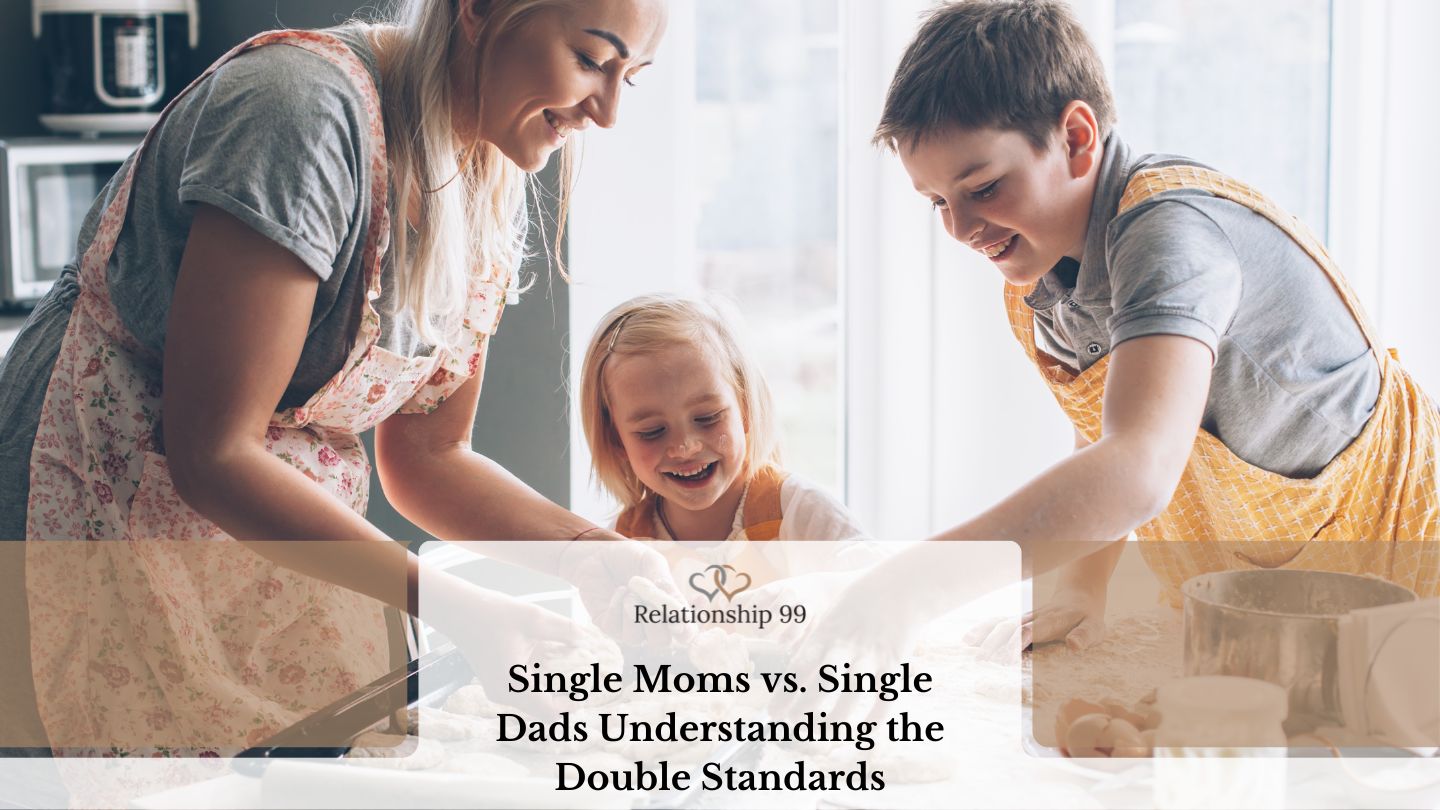Being a single parent is never easy, but it’s even more challenging when society has different standards for single moms and single dads. Single parenthood comes with its own set of struggles and challenges, yet the expectations and judgments placed on mothers and fathers are often vastly different. In this blog, we’ll delve into the double standards that exist between single moms and single dads and how these stereotypes can negatively impact both parents and their children.
The Struggle of Single Parenthood
First and foremost, it’s important to recognize the immense struggle that comes with being a single parent. Whether you’re a mom or dad, raising a child on your own means taking on all of the responsibilities and challenges of parenting without any support from a partner. From managing finances to scheduling doctor appointments to providing emotional support, single parents have an enormous amount of weight on their shoulders.

The Expectations for Single Moms
Single moms, in particular, face a multitude of expectations and stereotypes from society. They are often labeled as “strong” or “supermoms” for being able to juggle multiple roles and responsibilities. However, this expectation of strength can also come with pressure to always put on a brave face and never show vulnerability.
Additionally, single moms are often judged by their ability to provide for their children financially. They may face criticism and scrutiny for receiving government assistance or working multiple jobs, even though these measures may be necessary in order to make ends meet. This pressure to “do it all” can lead to burnout and mental health issues for single moms.
The Stigma Against Single Dads
On the other hand, single dads often face a different kind of stigma. As a society, we are conditioned to believe that mothers are the primary caregivers and nurturers, while fathers are meant to be breadwinners. This outdated gender role expectation can lead to judgments against single dads who may not fit into this traditional mold.

Single dads may also struggle with societal expectations around their ability to provide emotional support and care for their children. They may face criticism for not being as “involved” in their children’s lives as mothers, even though they are doing the best they can in a difficult situation. The lack of support and resources for single dads can also contribute to this stigma and make it difficult for them to find the help they need.
The Impact on Children
The double standards placed on single moms and single dads not only affect the parents themselves, but they also have a significant impact on their children. For single moms, there is often pressure to be the perfect parent, which can lead to feelings of guilt and inadequacy when they inevitably fall short. This pressure can also cause children to feel like they need to take on adult responsibilities and care for their mothers, which is not a healthy dynamic for any family.
On the other hand, the stigma against single dads can cause children to feel like their fathers are less capable and less involved in their lives. This can lead to feelings of shame and confusion for children, as well as strain the relationship between father and child.

Breaking Down the Double Standards
It’s time to break down the double standards that exist between single moms and single dads. Instead of placing unrealistic expectations on parents based on their gender, we should be supporting and uplifting all single parents. This means providing equal access to resources and support systems for both mothers and fathers, as well as recognizing that every family looks different and there is no “right” way to parent.
It’s also important for society to shift away from the idea that only women can be caregivers and only men can be providers. By challenging these gender stereotypes, we can create a more inclusive and supportive environment for all parents, regardless of their marital status or gender.
Other Factors to Consider
It’s also essential to acknowledge that not all single-parent households look the same. There are many factors that can contribute to a family being headed by a single parent, including divorce, the death of a spouse, or the choice to become a single parent. Each situation is unique and should be treated with understanding and empathy rather than judgment.

Additionally, we must recognize that not all single parents have the same privileges and opportunities. Single moms and dads who are people of color, LGBTQ+, or have disabilities may face even more challenges and discrimination in society. It’s crucial to acknowledge these intersecting identities and work towards creating a more equitable system for all single parents.
Additional Support and Resources
If you are a single parent, know that you are not alone. There are many resources available to support you, including online communities, support groups, and government assistance programs. It’s essential to reach out for help when needed and to also prioritize self-care for your own well-being.
Families come in all shapes and sizes, and there, again, no one “right” way to be a parent. As a society, we must work towards breaking down the double standards that exist between single moms and single dads and create a more supportive and inclusive environment for all parents. Only then can we truly uplift and empower all families.

The Bottom Line
Single moms and single dads are both facing similar challenges when it comes to raising children on their own, but they are often judged by different standards. It’s time for society to recognize and address these double standards, provide equal support and resources for all single parents, and work towards creating a more inclusive and supportive environment for families of all kinds. We owe it to our children to break down these societal expectations and allow all parents to thrive in their unique roles. So, let’s start by giving single moms and dads the recognition, support, and respect they deserve. After all, being a parent is one of the toughest jobs out there, regardless of gender or marital status.

